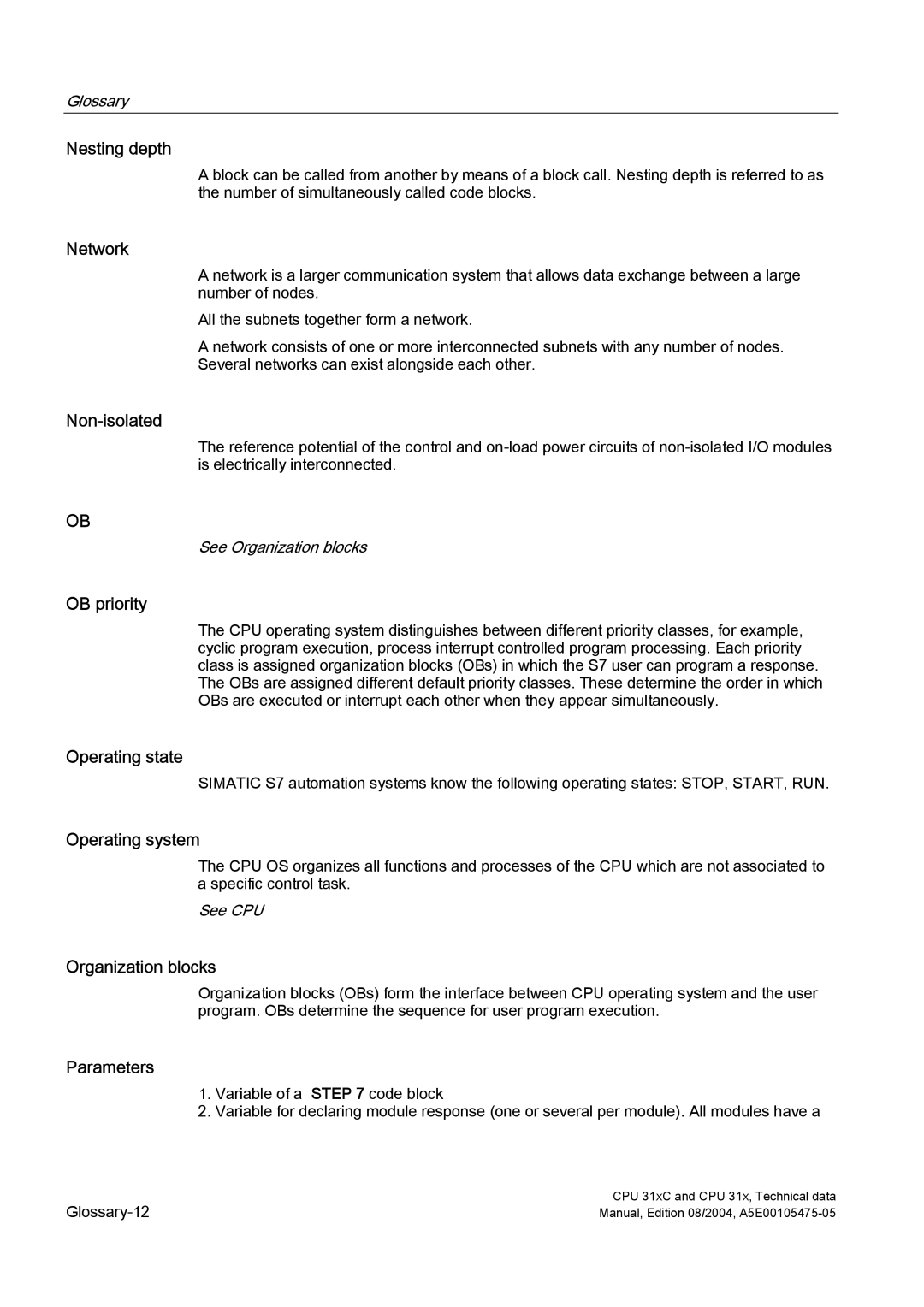Glossary
Nesting depth
A block can be called from another by means of a block call. Nesting depth is referred to as the number of simultaneously called code blocks.
Network
A network is a larger communication system that allows data exchange between a large number of nodes.
All the subnets together form a network.
A network consists of one or more interconnected subnets with any number of nodes. Several networks can exist alongside each other.
Non-isolated
The reference potential of the control and
OB
See Organization blocks
OB priority
The CPU operating system distinguishes between different priority classes, for example, cyclic program execution, process interrupt controlled program processing. Each priority class is assigned organization blocks (OBs) in which the S7 user can program a response. The OBs are assigned different default priority classes. These determine the order in which OBs are executed or interrupt each other when they appear simultaneously.
Operating state
SIMATIC S7 automation systems know the following operating states: STOP, START, RUN.
Operating system
The CPU OS organizes all functions and processes of the CPU which are not associated to a specific control task.
See CPU
Organization blocks
Organization blocks (OBs) form the interface between CPU operating system and the user program. OBs determine the sequence for user program execution.
Parameters
1.Variable of a STEP 7 code block
2.Variable for declaring module response (one or several per module). All modules have a
CPU 31xC and CPU 31x, Technical data Manual, Edition 08/2004,
